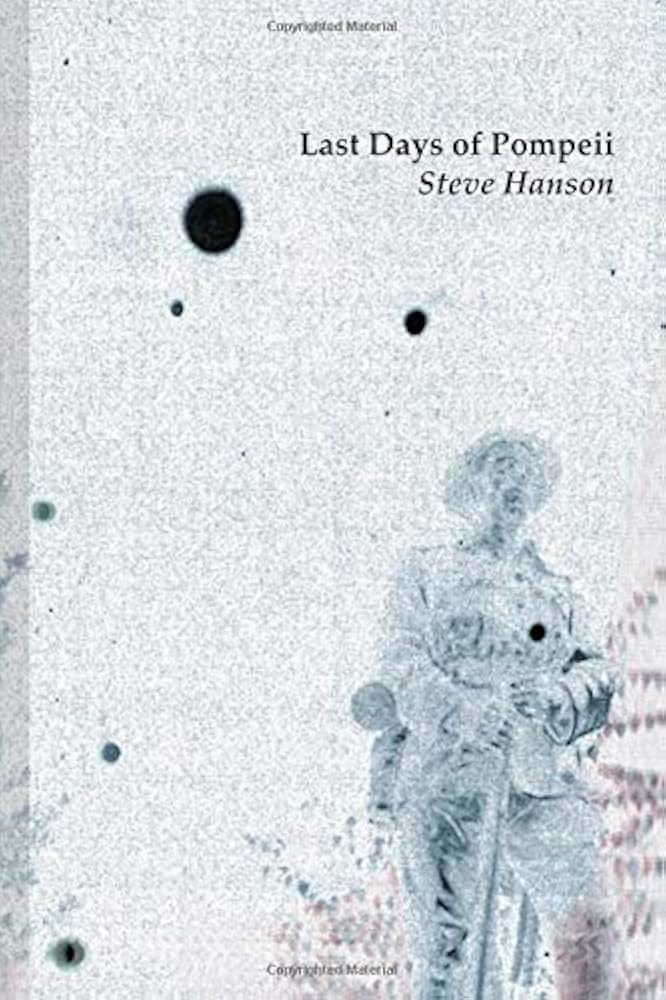Last Days of Pompeii: A Comedy by Steve Hanson, Erratum Press, 2024
This comedy a novel of failure, or this novel a comedy of failure, or this failure a novel comedy, or this novel a failure of comedy, because failure is always funny, because funny is always tragic, because tragic is always the secret doorway to insert oneself inside the castle. Hanson, near the end of vol. 2, lays out the book’s agenda in clear terms:
“The novel … would be full of the contempt that battered brain and body all day and night like a storm. It would be delinquent and its delinquency would be its virtue, because how could one write anything other at this point in history? It would be historical delinquency which described the delinquency of the world. It would be formally delinquent.”
And a few sentences on:
“The literature of failure…was off the agenda and he was putting it back on. Failure was off the agenda because the culture was a totalitarianism of success narratives.”
If we are placing this novel within the strictures of failure and success (what do these words mean, exactly), which it seems to be asking us to do (even as it is asking us not to), its formal delinquency stands out as its most brashly successful characteristic. Our antihero, a wage lecturer at a university who is struggling to balance his professional duties with his artistic desires (he wants to be a “writer”), keeps us off balance as we flit between academic narrative and bits of the narrative he is attempting to compose (rural gore-core? sci-fi?). The lack of transitions between storylines keeps us pleasantly disoriented, and the gritty absurdism of the stories inside the story is a wonderfully distorted mirror of this lecturer’s disgruntled, volcanic mindstate.
Vol. 1 of the novel is sharp, funny, weird, short, full of unexpected links and holes. Vol. 2 succumbs somewhat to the bloat of the conceit, branching into more didactic, philosophical meanderings—furthering the sense of formal delinquency, certainly, but untethering us from the physical violence present in Vol. 1 that floods its philosophy with Art.
And perhaps this is the point. As the novel’s title indicates, the narrative is pushing us toward an end of days, a literal erasure, of empire, of culture, of existence, even. If we are to be buried in a rain of molten ash, what worth is the spasmodic striving toward success? What does failure matter? Can it be called failure, when the only logical way to remove oneself from an oppressive system is to dive deeper in? To swim always sideways? The attempt at Art is the only truth in this moment, as it drags the past into the present and the present into the future. Pompeii is present in our narrator’s rather psychotic approach to work and to making—as he finds solace in neither, his life itself becomes illegible: the ash of eruption has begun to bury his very conception of self.
In short, if you think Kafka is funny, this book will make you laugh.




